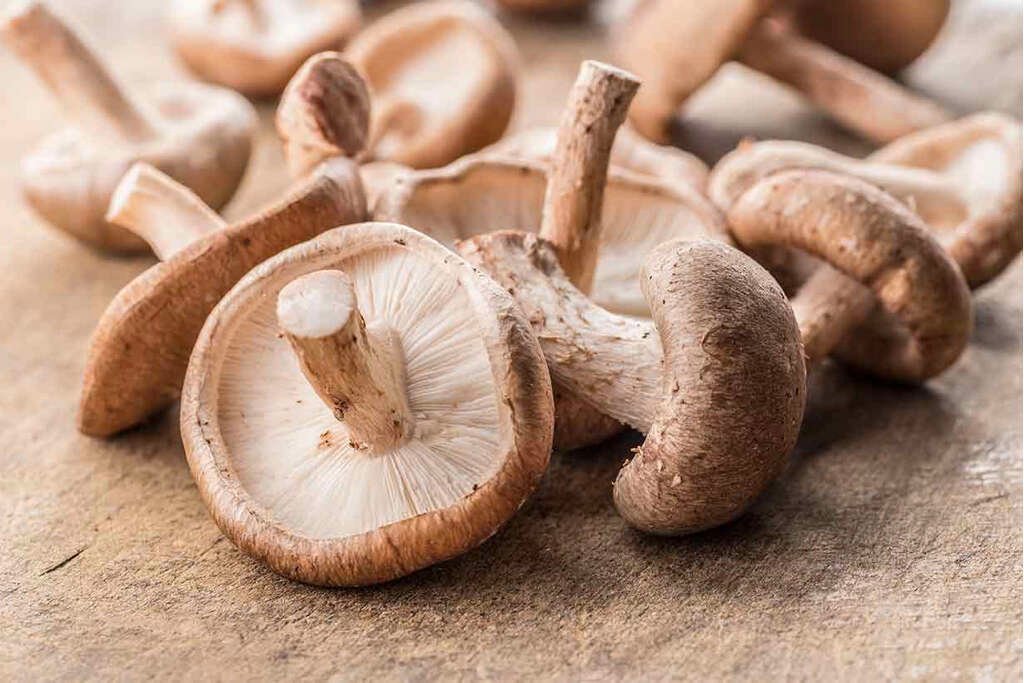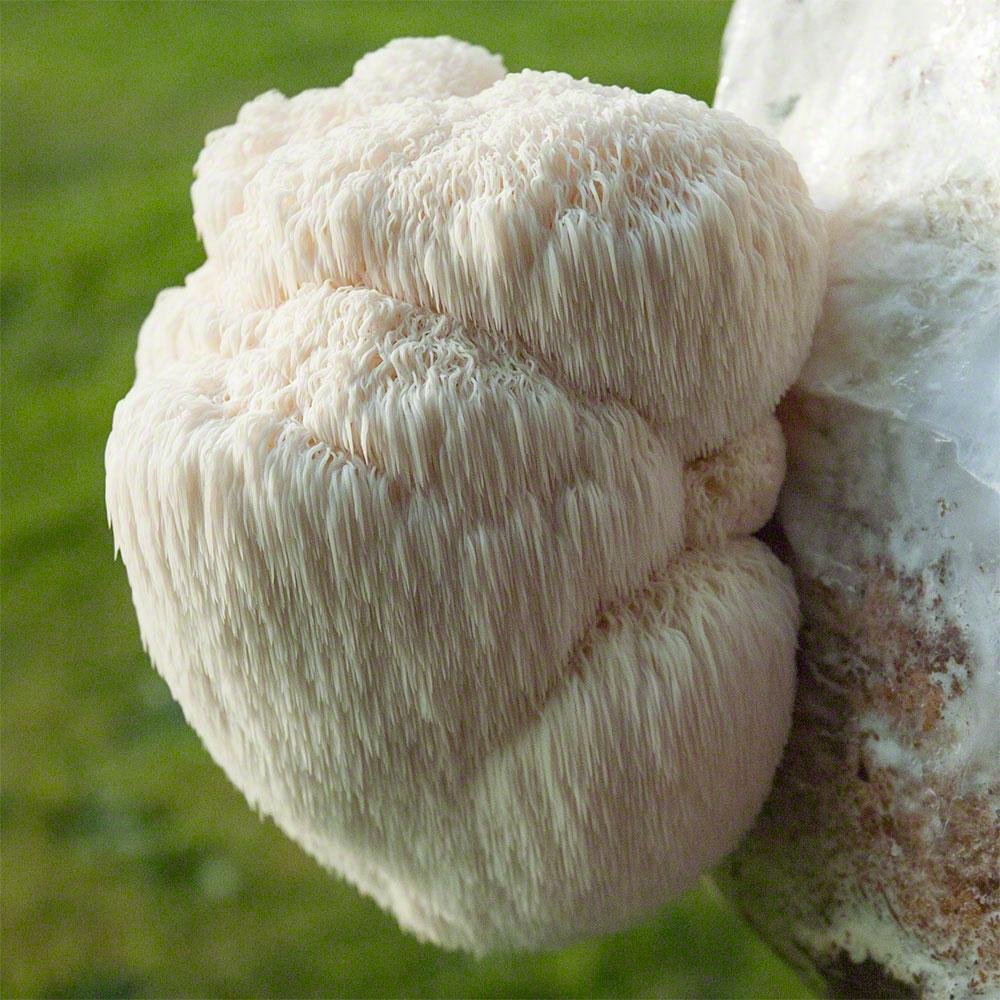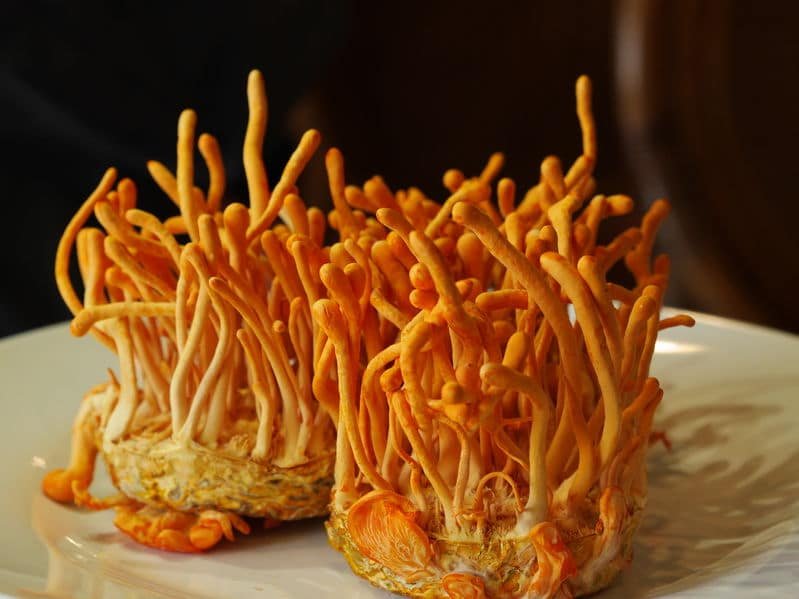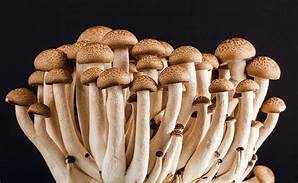Alzheimer’s disease is a mental health problem that begins in the mid-60s leading to a decline in memory and thinking ability. It is responsible for 60 to 70% of dementia cases. With the onset of Alzheimer’s disease life becomes difficult over time dealing with difficulties related to thinking, reasoning, remembering and behavior.

Although there is no cure for Alzheimer’s disease, medications help manage the symptoms and cope with the disease. With nootropics becoming more widely used in the treatment of patients suffering from Alzheimer’s disease, the question is whether it is possible to consume foods that are natural nootropics to help manage the symptoms of Alzheimer’s disease. Nootropics are substances that have stimulating effects and help enhance brain performance which enhances memory.
What Kinds of Mushrooms Are Helpful?
Certain types of mushrooms are natural nootropics that promote brain function when consumed. Lions Mane Mushroom, Chaga Mushroom, and Cordyceps are popular super mushrooms that are widely used among health enthusiasts to strengthen the immune system and improve gut balance. Their nootropic benefits make them suitable for use to help manage the symptoms of Alzheimer’s disease.

Lion’s Mane Mushroom: Grown on the twigs of hardwood trees, lion’s mane is rich in nootropic compounds such as Hericium erinaceus that stimulate the growth of brain cells and improve cognition. Studies have shown that eating lion’s mane mushrooms in small amounts for 4 months improves mental function.

Chaga Mushrooms: Chaga mushrooms are rich in antioxidants that are important for brain health. The brain is prone to oxidative stress that is linked to a decline in cognition and an increased risk of suffering from Alzheimer’s disease. It helps protect the brain from neurodegeneration by balancing the antioxidant system and protecting cells.

Cordyceps Mushroom: Cordyceps mostly found in mountainous regions increase blood flow to damaged brain cells. It reduces the effects of aging and the risk of age-related cognitive decline. Chronic stress leads to inflammation in the brain which results in memory damage and increases the risk of suffering from cognitive disorders. This mushroom has a positive effect on mood and enhances memory.

How to include mushrooms in your diet?
The easiest way is to replace your regular coffee with mushroom coffee or mushroom soup.
What is Alzheimer’s disease?
Alzheimer’s disease is the most common type of dementia.
It is a progressive disease that begins with mild memory loss and possibly leads to the loss of the ability to interact and respond to the environment.
Alzheimer’s disease involves parts of the brain that control thought, memory, and language.
It can seriously affect a person’s ability to perform daily activities.
Who has Alzheimer’s disease?
All infographics related to Alzheimer’s
In 2020, approximately 5.8 million Americans were living with Alzheimer’s disease.
Younger people can get Alzheimer’s disease, but it is less common.
After the age of 65, the number of people suffering from this disease doubles every 5 years.
This number is projected to almost triple to 14 million people by 2060.
Symptoms of the disease may first appear after the age of 60, and the risk increases with age.
What is known about Alzheimer’s disease?
Scientists do not yet fully understand what causes Alzheimer’s disease. There is no one cause, but a number of factors that can affect each person differently.
Age is the most well-known risk factor for Alzheimer’s disease.
Family history: Researchers believe that genetics may play a role in the development of Alzheimer’s disease. However, genes do not equate to destiny. A healthy lifestyle can help reduce your risk of developing Alzheimer’s disease.
Two large, long-term studies indicate that adequate physical activity, a nutritious diet, limited alcohol consumption, and not smoking can help people with depression. To learn more about the study, you can listen to a short podcast.
Changes in the brain can begin years before the first symptoms appear.
Researchers are studying whether education, diet, and environment play a role in the development of Alzheimer’s disease.
There is increasing scientific evidence that healthy behaviors, which have been shown to prevent cancer, diabetes and heart disease, may also reduce the risk of subjective cognitive decline. Here are 8 ways.
What are the warning signs of Alzheimer’s disease?
Colorful animated graphic of a person driving a red car
Alzheimer’s disease is not a normal part of aging. Memory problems are usually one of the first warning signs of Alzheimer’s disease and related dementia.
In addition to memory problems, someone with symptoms of Alzheimer’s disease may experience one or more of the following:
Memory loss disrupts daily life, such as getting lost in a familiar place or repeating questions.
Trouble handling money and paying bills.
Difficulty completing familiar tasks at home, at work, or comfortably.
Poor judgment.
Putting things in the wrong place and being unable to take a step back to find them.
Changes in mood, personality, or behavior.
Even if you or someone you know has many or even most of these symptoms, it does not necessarily mean that it is Alzheimer’s disease. Know the 10 warning signs (also available in Spanish).
What to do if you suspect Alzheimer’s disease
A middle-aged man and woman are sitting. Both are smiling at the camera. The woman is bowing with her head on the man’s shoulder.
Getting checked out by your healthcare provider can help determine whether the symptoms you are experiencing are related to Alzheimer’s disease or more treatable conditions such as vitamin deficiencies or medication side effects. Early and accurate diagnosis also provides opportunities for you and your family to consider financial planning, develop advance directives, enroll in clinical trials, and anticipate care needs.
How is Alzheimer’s disease treated?
Medical management can improve the quality of life for individuals with Alzheimer’s disease and their caregivers. There is currently no known cure for Alzheimer’s disease. Treatment addresses several areas:
Helping people maintain brain health.
Management of behavioral symptoms.
Slowing down or delaying the symptoms of the disease.
Also Read in Hindi: यहां बताया गया है कि कैसे मशरूम अल्जाइमर रोग को प्रबंधित करने में मदद कर सकते हैं?

